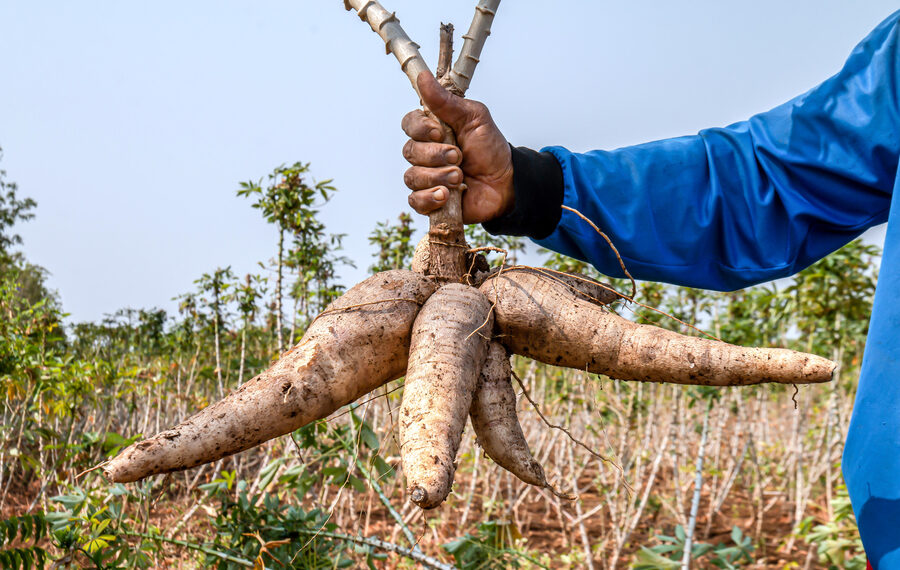No products in the basket.
The Thai government has announced a series of initiatives aimed at stabilizing cassava prices, ensuring fair compensation for farmers, and boosting the agricultural sector. These measures include providing subsidies for cassava production, improving storage facilities to reduce post-harvest losses, and expanding market access for farmers through export promotion and local processing industries.
Key Takeways
- As the cassava harvest season nears, the government plans to stabilize prices and secure farmers’ incomes through fair pricing and transaction protection. Deputy Spokesperson Anukool Pruksanusak announced task forces to work with commerce offices and inspectors to oversee cassava purchasing activities nationwide.
- Anukool stressed fairness in quality and pricing, urging farmers to harvest crops at full maturity for higher starch content and prices. Early harvesting has resulted in reduced prices due to lower starch content. Currently, cassava with 25% starch content is priced at 2.50 baht/kg.
- Buyers are warned to comply with legal standards; violators face penalties including imprisonment and fines for underpricing or displaying incorrect prices. Anukool highlighted severe consequences for using unverified measuring instruments, including up to seven years’ imprisonment and hefty fines.
As the cassava harvest season approaches next month, the government has unveiled measures to stabilize prices and safeguard farmers’ incomes. The initiative aims to ensure fair pricing, improve crop quality, and secure transactions through strict monitoring and enforcement of legal standards.
Deputy Government Spokesperson Anukool Pruksanusak revealed that the Department of Internal Trade has mobilized special task forces. These teams are collaborating with provincial commerce offices and weights and measures inspectors to supervise cassava purchasing activities nationwide.
Anukool highlighted the importance of fairness in quality assessments and pricing. He encouraged farmers to harvest their crops at full maturity to achieve higher starch content and better prices.
Currently, some farmers have already started harvesting. However, premature harvesting or the use of uncertified cassava varieties has resulted in lower starch content, averaging around 19-20%. This leads to reduced prices. Fresh cassava with 25% starch content is currently priced at an average of 2.50 baht per kilogram. Starch content is expected to increase by December as the rainy season concludes.
Buyers have been warned to comply with legal standards. Violators face strict penalties under existing laws.
Penalties for underpricing include up to seven years’ imprisonment, fines of up to 140,000 baht, or both. Violations such as failing to display prices, displaying incorrect prices, or charging for weighing agricultural products carry penalties of up to five years’ imprisonment, fines of up to 100,000 baht, or both.
Anukool also warned that using unverified or expired measuring instruments can result in six months’ imprisonment, fines of up to 20,000 baht, or both. Tampering with measuring devices may lead to seven years’ imprisonment and fines of up to 280,000 baht.
Discover more from Thailand Business News
Subscribe to get the latest posts sent to your email.













